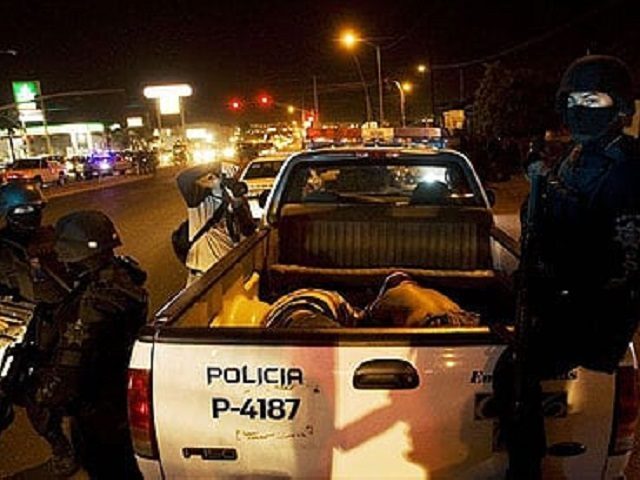Tijuana continues to notch cartel-related homicides with 17 registered in a 28-hour period over the weekend.
Cartel violence has now registered at least 153 murders for the month of January alone. Tijuana finished 2018 with a record-breaking 2,508 homicides, which was later adjusted upward by the state attorney general’s office to 2,518.
The most recent wave began on Saturday night at 8:26 pm when police were called to colonia Francisco Villa where a citizen reported an abandoned truck, according to local reporting. Responding officers discovered four male homicide victims wrapped in bed sheets. They displayed signs of torture. The bodies were later handed over to forensic personnel of the state attorney general’s office.
Additional homicides occurred at:
–1:43 am, Police discovered a murder victim who suffered multiple gunshot wounds in colonia Tres de Octubre.
–6:54 am, Police were directed to a murder victim with a gunshot wound to the head in front of a residence in colonia Colinas de Cortez.
–10:26 am, A bicyclist in colonia Mar de Vista found a murder victim who suffered multiple gunshot wounds.
–10:51 am, A victim with a gunshot wound to the head was located inside a residence in colonia La Gloria.
An additional 10 bodies were discovered–including two separate double homicides. The first was recorded east of Tijuana where two unknown male gunshot victims were discovered. The second was registered in colonia El Pípila, where two other male victims were found in the trunk of a burned vehicle.
The record-breaking cartel violence continues despite the federal government’s surge of military and federal police assets to the region at the end of 2018. The bloodshed is generally related to turf wars involving Cártel Tijuana Nueva Generación (CTNG), aligned with El Cártel de Jalisco Nueva Generación, against the Sinaloa Cartel. In some areas, rival factions within the Sinaloa Cartel are fighting for control of the lucrative street-level markets and smuggling routes into the United States. Those involved in the killings are primarily low-level dealers, lookouts, customers, and enforcers. Many of the street-level dealers are targets of rip-crews looking for cash and drugs.
Robert Arce is a retired Phoenix Police detective with extensive experience working Mexican organized crime and street gangs. Arce has worked in the Balkans, Iraq, Haiti, and recently completed a three-year assignment in Monterrey, Mexico, working out of the Consulate for the United States Department of State, International Narcotics and Law Enforcement Program, where he was the Regional Program Manager for Northeast Mexico (Coahuila, Tamaulipas, Nuevo Leon, Durango, San Luis Potosi, Zacatecas.)

COMMENTS
Please let us know if you're having issues with commenting.